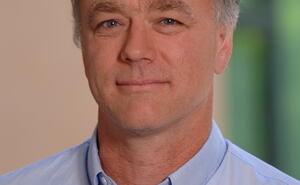Addressing the 'Coal Renaissance' in a Post-Kyoto World
On Monday, June 13, 2011 at 4:15 p.m. in Panofsky Auditorium, Richard Morse of Stanford University will present a colloquium, "Addressing the 'Coal Renaissance' in a Post-Kyoto World."
Coal has been the world's fastest growing source of fossil fuel since 2000, contributing more to global primary energy supplies than any other source of energy. Yet it is also the world's leading source of CO2 emissions. As the Kyoto Protocol approaches its end in 2012 and global carbon policy is fragmented into regional efforts, efforts to mitigate global emissions will require taking a hard look at the realities of coal markets and developing pragmatic strategies that don't rely on carbon policy.
Richard Morse of Stanford's Program on Energy and Sustainable Development will discuss the outlook for global carbon policy, how international coal markets are evolving, and what strategies and technologies might realistically be used to reduce emissions from coal. Discussion of carbon policy will include the latest developments in Europe, China, and the US, and analysis of international coal markets will highlight key issues for the future of Chinese energy consumption. Arguing that renewable energy in its current state can only address the coal emissions problem at the margin, Morse will consider the portfolio of carbon mitigation options that can operate at scale, including carbon capture and storage (CCS). Finally, in light of the recent nuclear tragedy in Japan, Morse will discuss with the SLAC community how to evaluate the relative risks of coal and climate change against the risk of nuclear catastrophe.
The talk is free and open to all.
Panofsky Auditorium
Stanford University
PESD Researcher Gang He Selected as Aspen Environment Forum Scholar
Transmission Policies to Unlock America's Renewable Energy Resources
On behalf of PESD, Stanford co-hosts PIE, TomKat, and SIEPR, and external sponsors Pillsbury Winthrop Shaw Pittman and the Kauffman Foundation, convened an all-day conference on September 15 on “Transmission Policies to Unlock America’s Renewable Energy Resources”
The traditional transmission paradigm was well-adapted to fossil fuel plants built near cities and operated by vertically-integrated utilities. We need a whole new transmission paradigm to realize the potential of intermittent wind and solar generation in today’s wholesale markets.
The conference sessions (see Agenda) focused on different aspects of what this new paradigm will have to look like, focusing on the Western region. How can markets for renewable energy credits help drive transmission policy? Who will pay for new transmission that straddles state lines and service areas? How can environmental impacts be weighed without bogging down transmission planning?
Our distinguished speakers and discussants have many years of experience working on precisely these issues from the academic, industry, nonprofit, and government perspectives. This event brought new insights into how to move forward on transmission in the West, and we thank everyone who participated.
For conference photos, click here
Opening remarks by Frank Wolak, Director, Program on Energy and Sustainable Development
Session 1: The Paradigm Shift in the Role of the Transmission Network
Speaker—Lorenzo Kristov, Principle, Market and Infrastructure Policy, California Independent System Operator (ISO)
Discussants: James Bushnell, Associate Professor, UC Davis Department of Economics and Udi Helman, Director, Economic and Pricing Analysis, BrightSource Energy
Session 2: Policy Tools for Meeting Renewable Energy Goals
Speaker—Harry Singh, Vice President, Goldman Sachs
Discussants: Sydney Berwager, Director, Strategy Integration, Bonneville Power Administration and Julie Fitch, Director, Energy Division, California Public Utilities Commission
Session 3: Developing a Regional Transmission Planning Process
Speaker—Brad Nickell, Director of Transportation Expansion Planning Western Electricity Coordinating Council
Discussants: Scott Cauchois, Transmission Expansion Planning Policy committee Chair, Western Electricity Coordinating Counsil and Rebecca Wagner, Commissioner, Nevada Public Utilities Commission
Session 4: Paying for Transmission
Speaker—Douglas Kimmelman, Senior Partner, Energy Capital Partners and Perry Cole, Managing Director, Energy Captial Partners
Discussants: Michael Hindus, Partner, Pillsbury Winthrop Shaw Pittman LLP and Darrel Thorson, VP, Business Development North America, BP Wind Energy
Session 5: Environmental Impacts of Transmission Siting
Speaker—Sean Gallagher, Managing Director, Government and Regulatory Affairs, K Road Power
Discussants: Julia Souder, Project Development Manager, Clean Line Energy Partners and Carl Zichella, Director of Western Transmission, Natural Resources Defense Council
Session 6: Lessons for Transmission Planning and Pricing
from Other Jurisdictions
Speaker—Benjamin Hobbs, Director, Environment, Energy, Sustainability,
and Health Institute, Johns Hopkins University
Discussants: Cristian Munoz, Engineer, AES Gener, Santiago, Chile and
Alex Papalexopoulos, President and CEO, ECCO International, Inc.
Koret-Taube Conference Center
366 Galvez Street
Stanford University
Transmission Policies to Unlock America's Renewable Energy Resources
The Program on Energy and Sustainable Development in collaboration with Stanford co-hosts PIE, TomKat, and SIEPR, and external sponsors Pillsbury Winthrop Shaw Pittman and the Kauffman Foundation hosted an all-day conference on "Transmission Policies to Unlock America's Renewable Energy Resources" on Thursday, September 15, 2011 at Stanford University.
Our distinguished speakers and discussants from the academic, industry, nonprofit, and government perspectives. This event brought new insights into how to move forward on transmission in the West, and we thank everyone who participated.
For conference materials, click here


